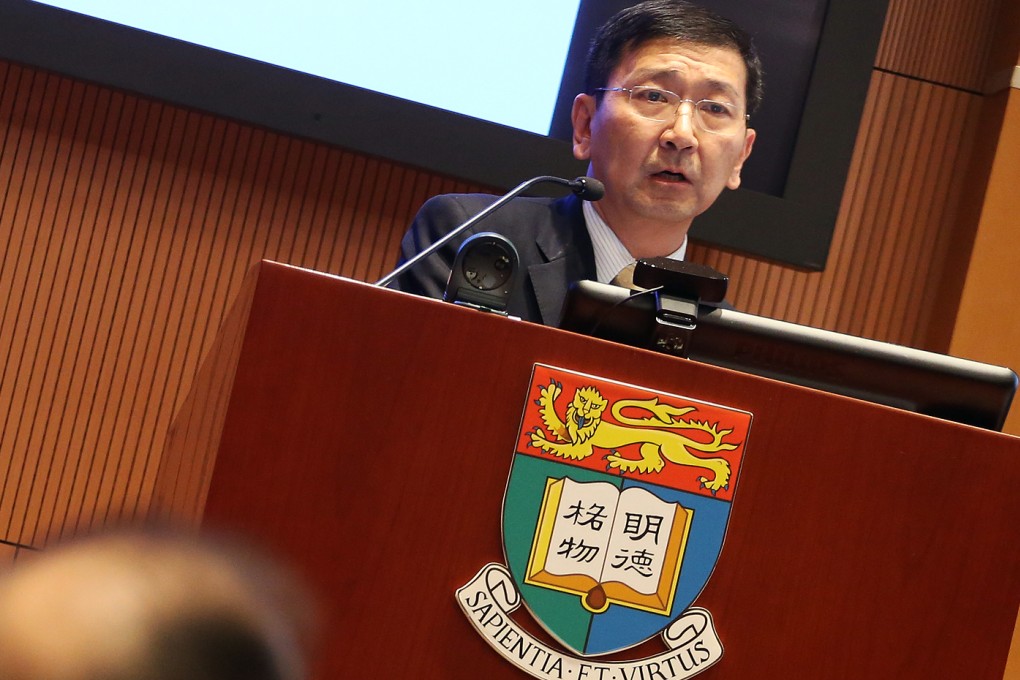Did the University of Hong Kong council consider the 'bigger picture' when deciding Johannes Chan's fate?
John Chan says Johannes Chan's qualifications were not the issue. What mattered was whether, given the controversy, his appointment was in the best interests of the university

Three days after the University of Hong Kong council decided to reject the recommendation to appoint former law dean Johannes Chan Man-mun as pro-vice-chancellor for academic staffing and resources, the dean of HKU's architecture faculty, Chris Webster, said he did not think the appointment of a pro-vice-chancellor for internal administrative affairs had a lot to do with academic freedom. He wrote that his personal (favourable) view of Chan's suitability for the post was no longer relevant since a decision had been made by a body of people better equipped to take a wider view, which he fully supported.
From the fragmented pieces of information about the proceedings leaked by Billy Fung Jing-en, the HKU Students' Union president, it appears that nearly all of those members who opposed Chan's appointment only questioned his qualifications, from the fact he has no doctoral degree to the fact that he has seldom published articles in academic journals. Apart from member Rosanna Wong Yick-ming worrying that appointing Chan would further split HKU, according to Fung, there isn't any evidence to show any "wider view".
Council members need to demonstrate to the public that they squarely faced the wider issues involved, and objectively weighed the political implications
Those who supported Chan's appointment criticised the council for breaching the long-established convention of endorsing a recommendation made by the search committee. Worse, the council, under the shield of confidentiality and collective responsibility, has thus far failed to make a collective stand on why it did not accept the recommendation.
Under normal circumstances, therefore, Chan's recommendation would have been endorsed by the council. Yet his links to Occupy Central instigator and law lecturer Benny Tai Yiu-ting turned what was supposed to be a non-controversial appointment into a fierce political confrontation between rival political forces. Both camps attempted to influence the council's decision by exerting tremendous pressure on members, to the extent of a forceful physical intrusion into the council chambers to disrupt a meeting in late July, on one hand, and publishing hundreds of articles bombarding Chan in the past few months, on the other.
Thus, Chan's appointment became a highly political issue. From the scant information leaked by Fung, it surprises me that so little, if anything, has been said by council members on the possible political implications of appointing or not appointing Chan to the post.

Had I been a council member, I would not have looked into Chan's academic or other qualifications required for the post. Such matters were dealt with by the search committee, and can be safely relied upon. The sensible question, therefore, would be whether there was any good reason not to adopt the recommendation. If the answer was "no", then the appointment should have been made. If the answer was "yes", then what were the council's concerns? They should not have been about qualifications, which had all been dealt with. My concern, if any, would only have been the wider issue: given that the appointment had become highly political and controversial, would appointing Chan to the post serve HKU's best interests?
My conclusion is no, it would not. My rationale: with Chan in the post, both the professor and the university would continue to be haunted by political controversies, thus preventing Chan from carrying out his duties effectively. In reaching such a conclusion, I would not have yielded to any political pressure from either side and my decision would have had nothing to do with academic freedom or institutional autonomy.